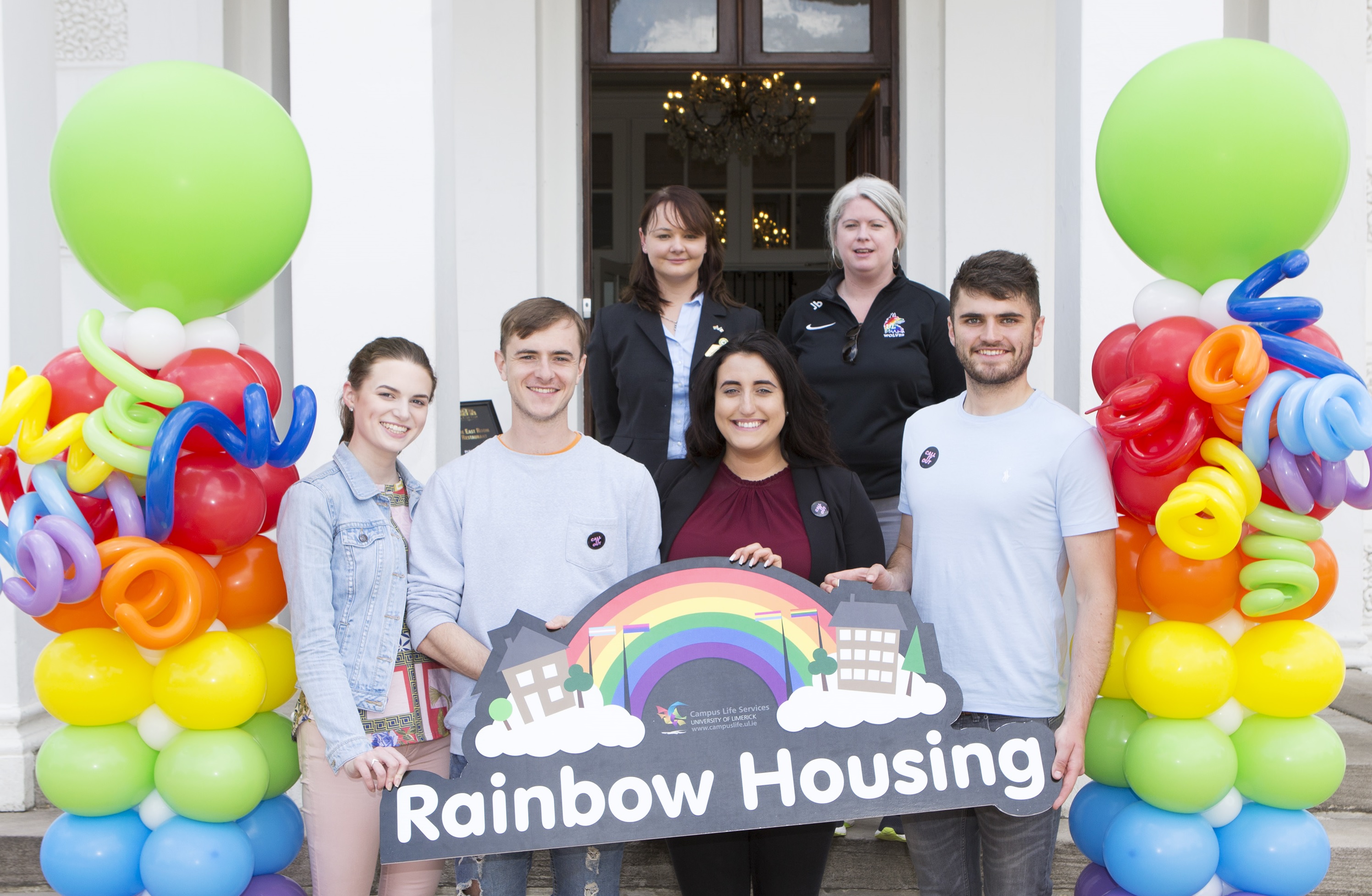In July, it was announced that the University of Limerick is launching a “rainbow housing” initiative, which will provide on-campus accommodation specifically for members of the LGBT+ community and their allies. The University of Limerick is the first Irish university to implement a scheme of this kind, although it is comparable to an initiative which Yorkshire’s University of Sheffield launched last year. Unsurprisingly for a contemporary project of this kind, the concept of “rainbow housing” has immediately been met with mixed reactions from the public.
Many people are dubious about the implications of the initiative. One such critic is the mayor of Clare, Cathal Crowe, who complained about the scheme on his Facebook page, describing it as an “over the top retrograde step” and “hugely segregationist”, while also asserting that the idea is absurd considering that the majority of students are struggling to find affordable accommodation in the country. When asked by Trinity News for a response to Crowe’s statement, the University of Limerick’s academic officer, Colin Lynch, said that they were collectively no longer commenting on the matter.
Furthermore, Aoife Price, the student mental health project manager of the Union of Students Ireland, expressed in a tweet referencing the scheme that she does not believe that segregation is the answer and that she is concerned that it may isolate students further. Like Lynch, Price refused to comment when asked by Trinity News for a statement.
The widespread criticism that is has received has somewhat overshadowed the aims of the scheme, which has likewise been exacerbated by divided commentaries on the topic both in the news and on social media. These debates have largely descended into denigration and mudslinging, while nuanced discussion falls by the wayside. As this is the case it is especially important to closely and objectively examine the initiative and consider the reasons for its implementation in the first place.
The widespread criticism that is has received has somewhat overshadowed the aims of the scheme, which has likewise been exacerbated by divided commentaries on the topic both in the news and on social media.
Carol-Jane Shanley, the village manager of the University of Limerick’s campus life services, outlined the aims of the scheme upon its announcement. She stated that she wants it to “create a conversation”, because “The best way to fight homophobia and transphobia is to educate…” However, she also realistically acknowledged that “rainbow housing” will not solve all of the issues that the LGBT+ community face within the university.
So far, the initiative has been largely supported by local LGBT+ groups and charities, including Limerick Pride and GOSHH Limerick, as well as political parties like Social Democrats. The scheme is evidently also considered to be a positive idea among a significant number of LGBT+ students, because over 200 people have already applied for “rainbow housing” within the university.
Speaking to Trinity News, GOSHH’s LGBT+ support project worker, Patrick McElligott, outlines the concept of “safe spaces” and discusses why the charity believes that they are necessary. He states that the initiative is “an important step in integration” within the university’s campus. “Safe spaces are vital for people to express themselves and the provision of these safe spaces can help form an environment where people can be themselves and engage in a wider community without fear and oppression,” he says. Safe spaces, in McElligott’s opinion, provide people with a vital place to “relax and ground themselves during their day and especially during college life, where they are sometimes balancing work, life and college”.
Despite this, O’Neill is of the opinion that “rainbow housing” is something that Trinity College should definitely consider implementing in the future.
Also speaking to Trinity News, Trinity College Dublin Students’ Union (TCDSU) LGBT+ rights officer, Thomas O’Neill, claims that the scheme is a “great idea”. However, he also highlights potential issues to consider regarding “rainbow housing”. “The impact it could have on LGBT+ students can both be positive or negative depending on how much the student feels that they are a part of the community. A lot of the time certain students feel that the LGBT+ community is a safe haven for them but sometimes other students feel they don’t belong within the community as they don’t possess certain characteristics that many of the general public would associate with the LGBTQIA community,” he says.
Despite this, O’Neill is of the opinion that “rainbow housing” is something that Trinity should definitely consider implementing in the future. Considering that Trinity is already upgrading various buildings currently, he asserts that it needs to be a “step by step” process, which could potentially involve “converting one or two of the houses in Trinity Hall” into safe spaces for LGBT+ students.
Whatever your opinion about “rainbow housing” is, there is no denying that the initiative is both a radical and well intentioned step from the University of Limerick, which will likely significantly impact the experiences of the students who utilise it. Only time will tell how well the scheme will actually work, but it is certainly something that should be considered and discussed in a comprehensive way.






